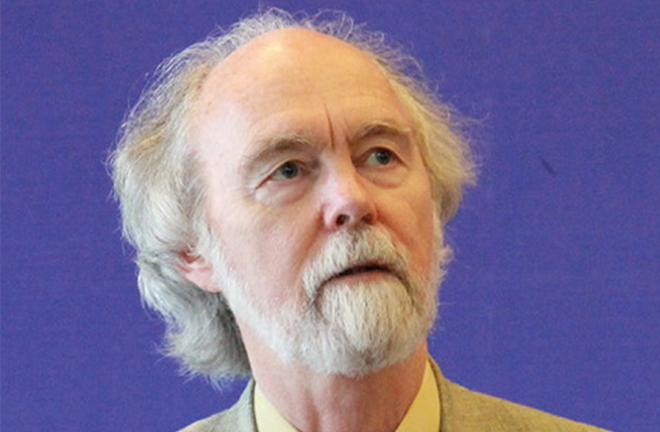Civilizations versus humankind at the turning point of modernity

I have two questions about the theme that I want to address in this short talk. So the first question is, what are the profound changes? I think it’s necessary if one is going to talk about profound changes, to talk also about profound continuities. And I will take a look at two of those, which I think are also kind of pushing us into the immediate future.
So what are the two profound changes that I think we’re looking at here? The first one of these is the end of the opening phase of modernity, in which a small core of states and societies held most of the wealth and power and dominated a large periphery. This situation came into being early in the 19th century, began to break down, I would argue, in the 1970s, when it became increasingly difficult for that small core of powers to dominate the rest of the world both militarily and economically, a trend that has been continuing ever since. I’ve talked about that elsewhere. As the rise of deep pluralism, in other words, the diffusion of not just wealth and power but also cultural and political authority to the rest of the world. In other words, the West isn’t going away, but relatively speaking, the rest of the world is catching up. This process is attended, by what I think of as a big and difficult problem of what might be called post-colonial resentment on the part of the former periphery. I mentioned a matching kind of forgetting about their colonial past on the part of the former imperial powers. It means that at the moment, compared to what it has been, international society, if you want to call it that has a big problem of fragmentation and therefore, of weak management. And this is, in a sense the nub of my concern about civilizational approaches. If we all retreat into civilizational bunkers, then we are going to worsen the problem of how to manage what is the second big change.
The second big change I would define as the end of the period in which both people and states can pursue wealth and power in an unrestrained way. We’ve had two centuries of the unrestrained pursuit of wealth and power. And that is now coming to an end, because we bumped up against the planetary limits of this. It’s not just that great powers can’t fight all-out wars again. That’s been with us now for more than half a century. But as we see around us we’ve reached the planetary limits or are rapidly doing so. We are already into noticeable climate change, noticeable sea level rise, very high levels of pollution of various types on a planetary scale, and a noticeable move into what some are calling the sixth great extinction of species, as a consequence of these things. So, we cannot any longer fight the wars in an unrestrained way that we once did. We cannot any longer just pell-mell pursue wealth and power as we once did. Because the planet is beginning to object. Potentially, it might object in ways that threaten the historical path of species empowerment on which humankind has been embarked for the last several thousand years. We are indeed now facing exit options from that path of species empowerment.
There is still an ongoing struggle over the balance between human equality and inequality. This has been something that has been going on since the beginning of modernity, in other words, since the late 18th century. Before that, human inequality was the basic rule of all civilizations. They were all very hierarchical. They all had strong class structures. They all had slavery. They all had patriarchy. They were basically organized around the principle of human inequality. That began to change in the 19th century rather slowly. And it’s a complicated, broad-spectrum issue. Some of the issues are still open, the contestation around them is ongoing. We are certainly still in the realms of inequality although not as much as we were in the past. The question about the distribution of wealth is also still open. Those of course of a capitalist inclination will welcome an uneven distribution of wealth and see that as a key dynamic in human progress. Those of a more socialist disposition will tend to want more equality of distribution of wealth. We still seem to be quite open about class and caste, which are strongly operative in many societies, in many different ways. More or less we have made slavery illegitimate, although that doesn’t mean to say it’s disappeared. Much the same can be said about dynasticism, which can still be found in places but it’s not common. Imperialism, another form of inequality has largely been delegitimized at least in its old-fashioned forms. And we are now no longer in the situation we were in the 19th and 20th centuries, when civilizations were treated as not equal. That was a standard of civilization, in which the West put itself at the top and everybody else in varying lower degrees. Now, it is safe to say, that civilizations are seen as equals and that relates to the fact that people are seen as equals. So we’ve got these background issues, which are, in some senses continuities and in some senses sources of change
Barry Buzan is Professor Emeritus of International Relations from London School of Economics and Political Science, the United Kingdom. This article was edited from his video speech submitted to the forum.
Edited by BAI LE
